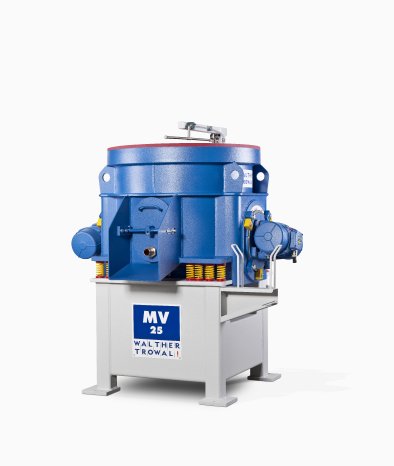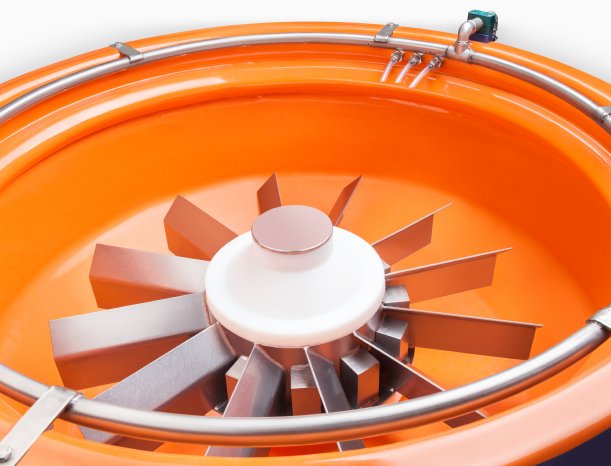After they have been milled from a cast block of aluminium, guide vanes for turbines or compressors require a very smooth surface to insure optimum airflow around every single blade. To date this required a complex and costly mechanical process.
Walther Trowal has recently developed a method that allows the gentle smoothing of the guide vanes after milling without rounding the leading edges beyond the acceptable tolerances – an important factor for increasing the efficiency of jet engines.
Basis for the new process are the rotary multi vibrators of the model range MV allowing the processing of guide vanes with diameters of up to 800 mm. The company utilizes special, extremely small ceramic grinding media, which provide not only optimum surface coverage on the work pieces but also smoothens the surface at the root of the vanes.
The guide vanes, but also blisks, are mounted to a fixture that is magnetically attached to the base of the processing bowl. This ensures that the overlapping, high-frequency vibrations from the multi vibrator are transferred to the work piece, causing intensive contact between the media and the vane surface areas.
The result of the fully automatic finishing process: The milling lines from the preceding machining step have been ground out creating a very smooth surface. With the new process Walther Trowal reduces the Ra surface readings from 4.0 down to 1.0 µm with only minimal rounding of the leading edges. This innovative mass finishing process creates ideal conditions for an optimum airflow through the guide vanes.
At the ALUMINIUM 2018 Walther Trowal also presents rotary vibrators used for the surface finishing of aluminium castings including the removal of burrs.
Walther Trowal at ALUMINIUM 2018
Düsseldorf, September 18 – 22, 2018
Hall 12, Stand G50



